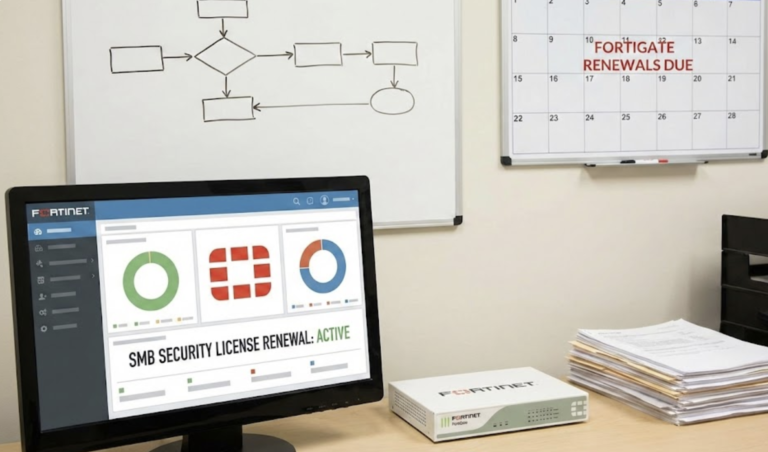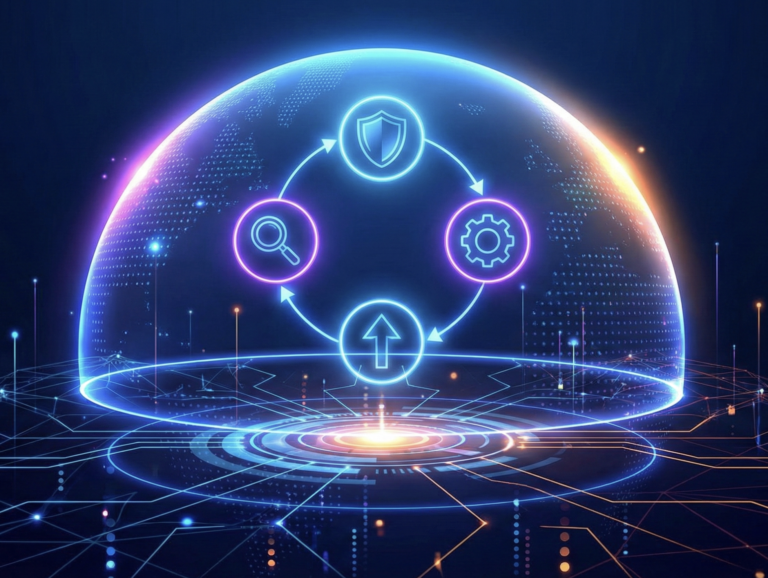The story of chatbots began with rule-based systems that could only follow scripts. If you asked the “right” question, you got a useful answer. If you didn’t, the conversation fell apart.
When large language models (LLMs) like GPT, Claude, or Gemini arrived, everything changed. Suddenly, chatbots could hold fluid conversations, summarize documents, and generate content in ways that felt remarkably human.
But for businesses in regulated or technical industries, general-purpose LLMs aren’t enough. They lack the nuance of sector-specific terminology, the precision required for compliance, and the contextual awareness to align with unique business processes.
That gap has led to a new wave of innovation: industry-specific LLMs. These models are trained not just on the open internet but on the specialized data, compliance rules, and operational workflows of a given sector. The result is a chatbot that doesn’t just “talk”, it understands your business.
Why Industry-Specific LLMs Are a Game-Changer
Generic AI has broad capabilities, but it often falters where precision matters most. In industries like healthcare, fintech, or manufacturing, a wrong or vague answer isn’t just an inconvenience—it can lead to fines, downtime, or loss of customer trust.
Here’s why industry-specific LLMs matter:
- Contextual Accuracy: They understand your sector’s vocabulary. A “claim” means one thing in insurance, another in healthcare, and something entirely different in legal services. Specialized LLMs know the difference.
- Regulatory Awareness: These models can be tuned to follow the rules—PCI DSS, HIPAA, SOC 2, GDPR, or other frameworks. This prevents compliance missteps.
- Operational Alignment: Unlike generic bots, which provide generic solutions, industry-specific LLMs can be integrated with your internal systems, knowledge bases, and workflows.
- Trust & Adoption: Employees and customers are more likely to rely on a chatbot that consistently provides accurate, relevant, and compliant answers.
Use Cases Across Key Industries
Healthcare: Protecting Patients While Improving Care
Healthcare organizations face strict data privacy rules and the constant need to streamline patient interactions. Industry-specific chatbots can:
- Answer patient FAQs while adhering to HIPAA/PHIPA compliance.
- Help staff retrieve policies or procedures instantly from secure databases.
- Provide guidance on privacy rules, consent forms, or patient rights in plain language.
- Support telehealth by triaging symptoms and routing patients appropriately.
FinTech: Balancing Innovation and Regulation
In financial services, speed must coexist with security. Specialized chatbots in fintech can:
- Automate customer onboarding while ensuring compliance with KYC (Know Your Customer) rules.
- Detect and flag potential fraud patterns in real time.
- Answer client queries about account security, verification, or investment options while following strict regulatory guidelines.
- Assist advisors with instant access to compliance-approved documentation.
Manufacturing: Knowledge on the Factory Floor
Modern manufacturing relies heavily on IoT devices and OT (operational technology), which are often difficult to secure and support. Here, chatbots can:
- Provide real-time troubleshooting guidance for machinery or IoT-connected devices.
- Offer immediate access to maintenance logs, reducing downtime.
- Alert teams to anomalies flagged by monitoring systems.
- Guide staff on safety protocols and industry-specific compliance frameworks.
SaaS & Professional Services: Scaling Smarter
Consulting and SaaS firms deal with recurring client questions and complex compliance demands. Industry-tuned LLMs can:
- Automate responses to billing, time tracking, or licensing inquiries.
- Generate draft reports and compliance-ready documentation.
- Help junior staff quickly access company playbooks or SOPs.
- Free consultants to focus on higher-value client strategy.
The Five Pillars of Cybersecurity and Chatbots
When BALANCED+ evaluates how industry-specific chatbots fit into an organization, we consider five core areas—our pillars of cybersecurity:
- Perimeter Security: Chatbots can help IT teams monitor VPNs, firewalls, and Wi-Fi environments, alerting them to unusual activity.
- Endpoint Protection: Chatbots integrated with EDR/MDR platforms can provide quick explanations or remediation steps when endpoints are flagged.
- Monitoring & Threat Hunting: With SIEM or SOAR integration, chatbots act as a natural-language interface for security analysts to query incidents or reports.
- Pentesting & Vulnerability Management: Chatbots trained on pentest reports can help leadership understand risks in plain English and prioritize fixes.
- Compliance & Governance: By encoding rules into the model, chatbots help employees stay compliant—answering “Can we store this data in the U.S.?” with confidence.
What to Consider Before Deploying a Specialized Chatbot
1. Data Security
Your chatbot must be trained and hosted in a way that keeps sensitive business and customer data safe. Using public LLMs without guardrails risks exposing proprietary information.
2. Integration with Systems
The chatbot should connect with your CRM, ERP, IT ticketing systems, or data warehouse. Without integration, it becomes another silo rather than a productivity booster.
3. Governance & Monitoring
Even industry-specific LLMs require monitoring to ensure accuracy. Establish a review process for ongoing fine-tuning and compliance checks.
4. Scalability
Choose solutions that can evolve as your business grows. A chatbot designed only for customer support today should be able to expand into compliance, internal knowledge management, or IT support tomorrow.
How BALANCED+ Can Help
BALANCED+ brings together 20+ years of consulting experience in cybersecurity, IT engineering, software development, and AI/ML. We help organizations design and implement industry-specific chatbot solutions that are secure, compliant, and deeply aligned with business goals.
Our approach includes:
- LLM Training & Fine-Tuning: Using your industry data, policies, and workflows.
- Secure Deployment: Ensuring compliance with privacy and data protection standards.
- System Integration: Connecting chatbots with the tools your teams already rely on.
- Continuous Monitoring & Optimization: Providing managed services to keep your chatbot accurate, secure, and evolving.
- Strategic Roadmaps: Aligning chatbot adoption with your broader IT and digital transformation journey.
Why This Matters for Business Leaders
Cybersecurity and compliance challenges are only growing. Customers expect faster responses. Employees demand better tools. Regulators are tightening requirements.
Industry-specific chatbots powered by LLMs solve all three challenges:
- They provide faster, more accurate answers for clients and staff.
- They help ensure compliance with industry frameworks.
- They reduce the burden on overstretched IT and security teams.
This is not a futuristic vision—it’s already happening across healthcare, fintech, manufacturing, SaaS, and beyond.
Conclusion: Moving Beyond Generic AI
Generic chatbots were a useful first step, but they’re no longer enough. Businesses that want to stay competitive, and secure, must adopt intelligent, industry-trained chatbots that understand their unique risks, compliance needs, and workflows.
The future of chatbots isn’t just conversation. It’s trusted automation, powered by industry-specific LLMs.
Ready to explore how specialized chatbots can protect and transform your business? Contact BALANCED+ to start the conversation.



